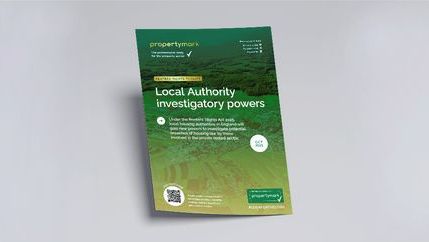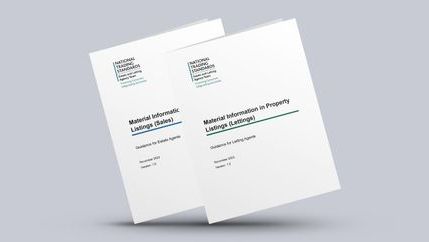Latest news
Renters’ Rights Act: practical steps for letting agents to take now
With just over two months to go until the first changes take effect, letting agents should now be focused on operational readiness. Continuing our support for members, our latest webinar in a long series, addressed the issues most frequently raised by agents. These included written information requirements, payment processes, rent increases, possession grounds and internal systems. With early planning, clear documentation and robust processes, agents can approach 1 May 2026 with confidence.
Silver surge: what’s driving a rise in older homebuyers?
New analysis of a decade of homemover data shows that buyers aged 50 – 59 are now the fastest-growing segment of the UK housing market. The findings highlight a significant shift in market activity that agents should factor into their business planning and service offerings. The growth of the older buyer group does not signal a decline in other segments. However, it does underline the importance of understanding who is driving transactions at any given time.
New approach – but no uplift – for Disabled Facilities Grant
The reforms are designed to better reflect current patterns of need and ensure funding is distributed more fairly and will influence how quickly adaptations can be delivered for disabled homeowners and renters, including those in the private rented sector (PRS). However, the UK Government has not lifted the cap on the maximum grant amount, leaving some people still unable to cover the cost of necessary work.
1 April 2027 is the date for updated high-rise fire safety rules
Jersey’s States Assembly has passed regulations establishing a statutory fire safety regime on the island. The new legislation responds to lessons from the Grenfell Tower Inquiry Phase 1 to modernise ongoing fire safety management in high-rise homes as well as protect residents and emergency responders. Further guidance is expected from the Assembly before implementation.
Propertymark network helps agents prepare for Renters’ Rights transition
Experts Brian Moran, Advisory Panel Member (Scotland) and Angela Davey, Advisory Panel Member and Regional Executive (Wales), who have first hand experience of similar reforms to the Renters’ Rights Act, shared practical lessons in our webinar with a core message of reassurance. Practical lessons on how Scotland and Wales have managed, on what does and doesn’t work, and where agents should focus their efforts now were imparted, as well as emphasising how essential early preparation, good communication, and robust processes are, so that letting agents can continue to support landlords and tenants while adapting to the new regulatory landscape.
Introduction of Regulatory Board marks a significant step for Propertymark
The new Board formalises the separation between Propertymark’s regulatory and representative functions, ensuring that regulation is independent, impartial and firmly focused on the public interest. This approach aligns us with best practice across other regulated professional sectors, reinforcing our long-standing commitment to high standards and accountability and strengthening professionalism, transparency and public trust across the property sector.
Prepare now for mandatory short-term let registration in Autumn 2026
All visitor accommodation in Wales will need to be registered under new Welsh Government legislation, and agents should act now to support their landlords and avoid disruption when the new system goes live. Propertymark has engaged closely with the Welsh Government throughout the development of these proposals, focussing on ensuring that any new framework is proportionate, workable for agents and landlords, and recognises the wider housing pressures facing Wales.
English Housing Survey shows professional agents vital to raising housing standards
Housing quality and energy efficiency underline the progress made, and the scale of the challenges still facing the sector is the headline finding in the EHS (English Housing Survey). Policy ambitions must have clear guidance, realistic timescales, workable exemptions, and sustained funding to reflect the diversity of the housing stock. Active involvement by qualified property professionals is also a must if raising standards is to be achieved.
AML registration failures still the top cause of painful agent fines
HM Revenue and Customs (HMRC) has issued hundreds of thousands of pounds in new fines to property agents for failures to comply with anti-money laundering (AML) regulations, reinforcing the consequences of getting compliance wrong. The latest enforcement action covers the 2025–26 reporting period and includes 170 penalties issued to estate agency businesses, totalling more than £835,000. Letting agents are also within HMRC’s supervisory scope where transactions meet the required thresholds.





















